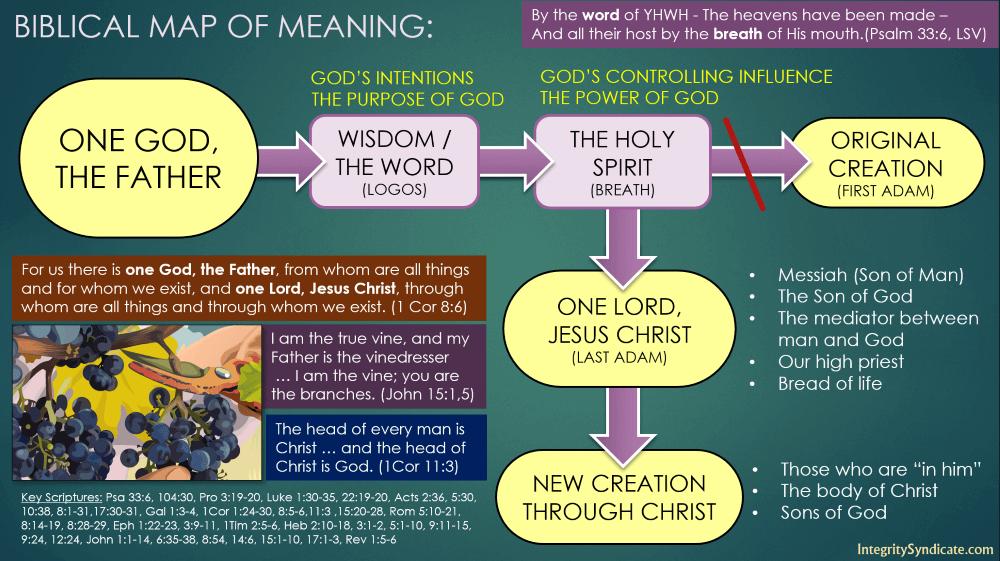What is the Essence - Energy Distinction?
Making this distinction affirms that there are some things that God cannot share and some things God can share: things that are non-communicable and things that are communicable. God cannot share his essential nature or essence (ousia); that is his ontology. Otherwise, we could become God. But God can share his Holy Spirit, which pertains to the Energies (energeia) of God.
The Essence/Energy Distinction, also known as Palamism or the Palamite distinction, is a theological concept. The main idea is the differentiation between the essence (ousia) and the energies (energeia) of God. This distinction is essential in understanding the way humans can know, interact with, and participate in God and has significant implications for theology and spirituality.
Essence refers to the divine essence or nature, the very being of God. It is what makes God, God. It is uncreated, eternal, unchangeable, and incomprehensible. This aspect of God is completely transcendent and cannot be truly known or shared with creation due to its absolute otherness. In other words, God's essence is non-communicable.
Energies, on the other hand, refer to divine actions or operations. They are also uncreated and eternal, but unlike the essence, they are immanent and can be experienced by creation. These are the ways that God interacts with the universe, revealing Himself without making His total essence comprehensible. Through these energies, humans can participate in the divine life (theosis or deification). This participation does not mean humans become God in essence, but they are transformed and become “partakers of the divine nature” (2 Peter 1:4) in a relational sense. Hence, God's energies are communicable.
The Greek word Energeia is used eight times in the NT, often translated as energy, and pertains to metaphysical working, operation, or action (BDAG). Energeia as it pertains to God, is synonymous with the operations of the Holy Spirit.
These are the NT occurrences of Energeia as it relates to power of God: Phil 3:21; Col. 1:29, Col 2:12, Eph 1:19, Eph 3:7
Philippians 3:21 (AICNT)
“who will transform the body of our humiliation to be conformed to the body of his glory, according to the working (energeia) by which he is able even to subject all things to himself.”
Colossians 1:29 (AICNT)
“For this I toil, struggling with his energy (energeia) that powerfully works within me.”
Colossians 2:12 (ACINT)
“Having been buried with him in baptism, in which you were also raised with him through faith in the activity (energeia) of God, who raised him from the dead;”
Ephesians 1:19 (AICNT)
“and what is the surpassing greatness of his power toward us who believe, according to the working (energeia) of the might of his strength,”
Ephesians 3:7 (AICNT)
“of which I became a servant according to the gift of God's grace given to me according to the working of his power. (energeia)”
Confusing God who is spirit, with the Holy Spirit
The term 'spirit' in Greek has numerous meanings. In all cases, it is to designate something that is non-physical (meta-physical)
People typically confuse God being spirit, with the Holy Spirit. To say God is spirit is simply to affirm that God is not physical (God is metaphysical). But the Holy Spirit has a different nuance in its contextual use throughout the Bible. It always refers to God in his capacity to act or influence; that is his Energeia. For this reason, I believe it is best to understand Holy Spirit as God's controlling influence rather than the essence, nature, or substance of God.
Although God's essential nature is not shared with us, his Holy Spirit (energeia) is.
For more on understanding what the Holy Spirit is, see https://controllinginfluence.com.
The Father, the Word, and the Holy Spirit as aspects of God.
What is the Father, the Word, and the Holy Spirit?
- The Father is the one God as He is personally identified
- The Word (Logos) of God is an aspect of God pertaining to God in His capacity to understand, think and plan.
- The Holy Spirit of God, is an aspect of God pertaining to God in his capacity to act and exert influence over creation – His controlling influence and transmissible power (energeia).
God sharing his glory in reference to the Essence / Energy distinction
In some absolute sense, God cannot, and does not, share his glory. But in some sense, God does share his glory. In another post on Does God Share His Glory? I make a distinction between Essential Glory (the glory of God that cannot be shared with others) and Energetic Glory (the glory of God that can be shared with others). Essential Glory is the glory of God associated with his essence (ousia). Energetic Glory is the glory of God accomplished through the Holy Spirit (energeia).
https://www.basedtheology.com/2023/06/does-god-share-his-glory.html
The question of God sharing His glory is another application of the Essence-Energy Distinction, that serves to clarify how seemingly contradictory statements in Scripture can be harmonized.
